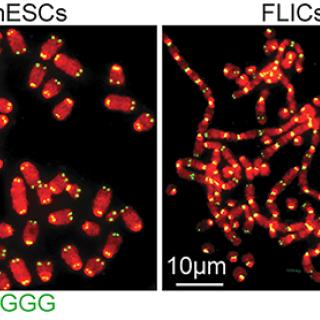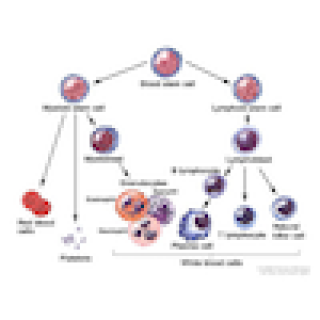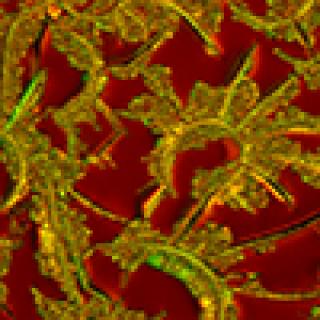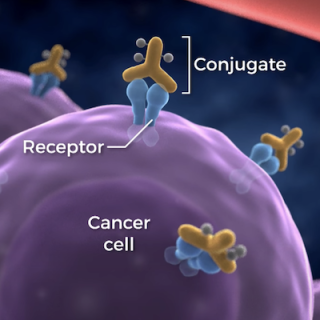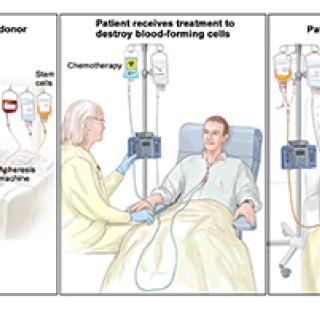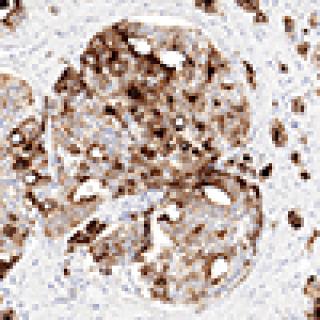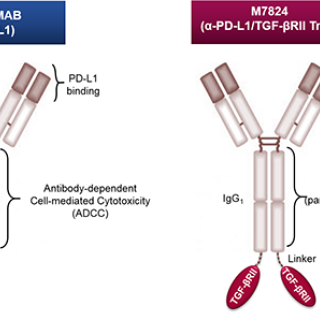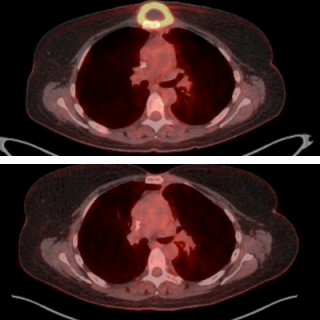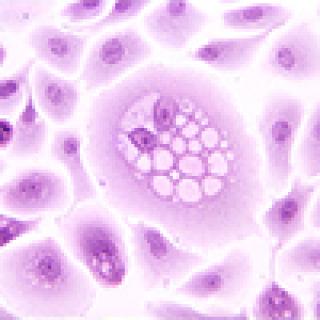News and Events
Proteins Released from the Nuclei of Dying Cancer Cells Promote Tumor Growth
Material released from dying cancer cells, known as tumor cell nuclear expulsion products (TuNEPs), contains specific proteins that promote the growth of neighboring cancer cells. Targeting these proteins could lead to new treatments that hinder cancer spread and improve patient outcomes.
Read MoreEmbryonic stem cells have their own strategy for protecting chromosome ends
According to new research from CCR scientists, embryonic stem cells have a unique way of protecting their telomeres, the structures at the ends of chromosomes that shorten with every cell division. Understanding it could help explain how some cancer cells circumvent the growth limits imposed by the natural shortening of telomeres that occurs as we age.
Read MoreClinical trial studies modified treatment regimen for patients with B-ALL
B-cell acute lymphoblastic leukemia (B-ALL) is a fast-growing type of blood cancer in which too many B cells multiply in the bone marrow and blood. Haneen Shalabi, D.O., Assistant Research Physician in the Pediatric Oncology Branch, is leading a study looking at a different way of preparing patients for bone marrow transplant after they have received treatment for B-ALL.
Read MoreClinical trial to test drug for cancer patients with weakened immune systems
Cancer survivors age 60 and older have weakened immune systems, often caused by cancer treatments. Investigators want to see if a drug, NT-I7, is able to boost the response to vaccines in patients who otherwise may not be able to respond.
Read MoreJapan approves photoimmunotherapy for head and neck cancer
Promising clinical trials have led to the regulatory approval of the Bioblade® Laser System and Akalux® IV Infusion 250mg in Japan. This device and drug combination was developed under an investigational treatment platform based on a cancer therapy called photoimmunotherapy.
Read MoreNew clinical trial studies stem cell transplant for primary immunodeficiency diseases
Dennis D. Hickstein, M.D., Senior Investigator in the Immune Deficiency Cellular Therapy Program is leading a study that uses new DNA technology that speeds up the process of screening for primary immunodeficiency diseases (PIDs) and finding an acceptable donor match for hematopoietic stem cell transplant (HSCT).
Read MoreClinical trial studies therapy for people with prostate or kidney cancer
James L. Gulley, M.D., Ph.D., Chief of the Genitourinary Malignancies Branch, is leading the National Cancer Institute’s participation in a clinical trial of an experimental drug called JNJ-63898081. The goal of this multicenter study is to find out if the drug is safe to use in humans and to determine the optimal dose for the second phase of the study.
Read MoreCombination therapy tested in clinical trial for metastatic genitourinary cancers
Genitourinary cancers are common but difficult to treat with chemotherapy or immunotherapy alone. A new clinical trial studies two drugs that intensify the immune system’s attack on cancer cells.
Read MorePeter Choyke and Louis Staudt elected to the National Academy of Medicine
Peter Choyke, M.D., F.A.C.R., Chief of the Molecular Imaging Branch, and Louis Staudt, M.D., Ph.D., Chief of the Lymphoid Malignancies Branch, have been elected to the National Academy of Medicine (NAM). Dr. Choyke is elected for pioneering advances in the imaging of prostate cancer that have enabled accurate localization of clinically significant tumors. Dr. Staudt is elected for demonstrating that genetic profiling can distinguish lymphoma subtypes, predict patient survival, and individualize therapy, thus playing a key role in launching the era of cancer precision medicine.
Read MorePhase I CAR T-cell therapy leads to years-long remissions in relapsed B-cell lymphoma patients
In a Journal of Clinical Oncology article, results of a phase I trial by CCR investigators show that CAR T-cell therapy can result in long-lasting remissions in patients with certain relapsed B-cell lymphomas. Many who had life expectancies of only six months or less during the clinical trial of the therapy, which spanned from 2009 to 2015, remain in complete remission.
Read MoreClinical trial tests immunotherapy combination for advanced HPV-associated cancers
Human papillomavirus (HPV) is the most common sexually transmitted infection. More than 30,000 cases of HPV+ cancers occur every year in the United States. CCR investigators are leading a study using a combination of 3 immunotherapy drugs to treat HPV+ cancers.
Read More
